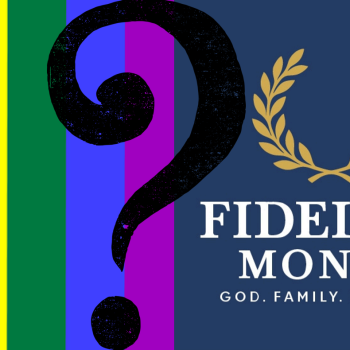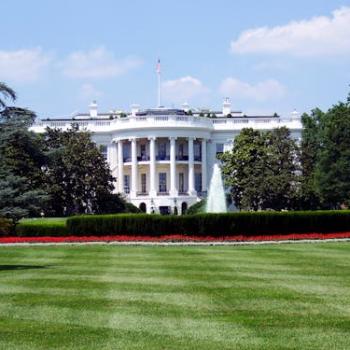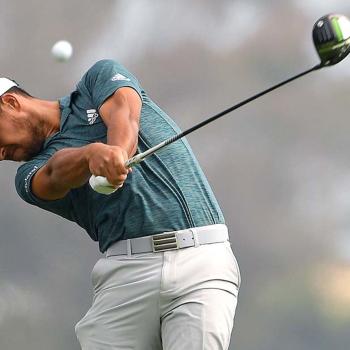Mr.I was born and reared in Seattle, Washington. I didn’t come from a religious home. But both of my parents were from church-going families. So, they had respect for Christian people. And I had two uncles who were church pastors. One of them became the pastor of the West Seattle Church of the Nazarene. It was located about one mile from my house. So, when I was about six years old my mother began sending me off to Sunday school there.
The next year, in 1949, my mother attended the Billy Graham Crusade one evening, and she took me with her. She cried while Mr. Graham was preaching. I hadn’t hardly ever seen her cry, so it made quite an impression on me. I wondered why she would do that. I decided right there that when I grew up I was going to find out what that man was saying that would make my mother cry.
I kept attending Sunday school regularly. When I was thirteen years old, my Sunday school teacher, a college student named Gordy, led me in prayer to make a profession of faith in Jesus. I believe I was then born again, as Jesus explained to Nicodemus in John 3.3-5. Years later, I attended the University of Houston in Texas. I became involved with Christian athletes, Campus Crusade for Christ, and attended a Bible Church where I was learning the Bible. It then became one of my goals in life to meet Billy Graham.
I graduated from college and began the PGA Tour in 1964. In 1965, some of us Christian pros on Tour started what we called “the PGA Tour Bible Study.” It still exists today, almost fifty years later, and it’s going strong. The idea even spread unto the American women’s PGA (LPGA) and several other PGA tours around the world as well as the Champions Tour and Web.com Tour here in the U.S.
In 1968, I played in my first of six Masters tournaments. During that week, I was invited to stay at the home of a man named Whitney. He was the great, great, grandson of Eli Whitney, the inventor of the cotton gin. That was one of the greatest inventions of its time, and it revolutionized the cotton industry in the South.
Mr. Whitney, who I hadn’t known before, was a fine Christian man. He had a theological library in his home which really intrigued me. I had never seen anything like that in a person’s home. It then became another goal of mine to do the same in my life. It’s because I was becoming quite interested in studying the Bible and learning what theologians and those who write Bible commentaries say about it. This dream eventually came true, so that I now have about 2,500 volumes in my theological library.
Mr. Whitney then told me a true story about him and Billy Graham. He said that when young Billy Graham was just starting his evangelistic ministry, some of the Christian businessmen there in Augusta, Georgia, got together and discussed having a city-wide, evangelistic crusade that would be bi-partisan regarding churches. Their idea was to invite all of the city’s churches to be involved in the effort. They selected three men as a committee to choose the evangelist. And Mr. Whitney was chosen as one of the three.
Mr. Whitney and the other two gentlemen contacted various evangelists, met with them, and interviewed them. And these businessmen would go and listen to these evangelists preach. “Bill Graham,” as Mr. Whitney called him, was one of the several evangelists that he and the other two men interviewed and heard preach.
Then it came time for the committee to choose who they would invite as the evangelist of their city-wide crusade. The other two men said they were most impressed with Bill Graham, so they voted for him. Mr. Whitney chose someone else. But the majority ruled, so that Bill Graham was chosen. As we might expect a successful businessman to do, Mr. Whitney then announced very seriously, confidently, and firmly to the other two Christian gentlemen on the committee, “That Bill Graham will never amount to any more than a country preacher.”
It wasn’t very long afterwards that I met Billy Graham. Sometimes, he would come to a PGA Tour tournament and play in our Wednesday pro-am event. At most Tour tournaments, about fifty of the pros play 18 holes of golf with amateurs who pay a certain sum of money to play in the one-day event. The pairings are three or four amateurs with one professional. Billy Graham did this occasionally at the Charlotte or Atlanta tournaments. They weren’t very far from his home in Montreat, North Carolina. Someone may have volunteered to pay for Billy to play. But tournaments often forego that fee for celebrities.
So, I achieved one of my goals. The first time I met Billy Graham was at the Atlanta Country Club during the PGA Tour’s Atlanta Classic. He was on the putting green stroking a few putts in preparation to play in the pro-am. When I was introduced to him there, my name apparently didn’t register quite right with him because he called me “Zermit.” And he called me Zermit two more times and then headed off to the first tee to begin his round of golf.
Not only that, Billy Graham putted cross-handed. Back in those days, no one putted cross-handed. The very few amateur golfers who did so were regarded as a bit weird, especially by us pros. But today, it seems as though nearly half of all the pros on the PGA TOUR putt cross-handed. It now looks as though Billy Graham was a man ahead of his time, at least in putting.
However, Billy didn’t only play the game cross-handed on the short grass; he also did it with every club in the bag. That’s hilarious. Whenever I’ve tried to hit a full golf shot cross-handed, which certainly was very few times in my life, I felt like I was going to break my wrists. To my knowledge, there has been only two pros who played the entire game cross-handed and tried to play a full schedule on the PGA Tour.
Billy used to always say that his professional instructor at home in Montreat would try to get him to change over to the common way of gripping the club. For right handed golfers, it is to put your right hand on the club lower than your left hand. But Billy said he couldn’t convert. He couldn’t get used to playing the full shots the right way because he had played cross-handed from the very beginning, when he took up the game in his teens. So, there you have it—the great Evangelist Billy Graham could convert others, but he couldn’t convert himself! He had a bad habit that he couldn’t break!
During my time on the PGA TOUR, Billy Graham preached to us pro golfers four times. I think the first time was that year I met him. There in Atlanta, at a Marriot Hotel, we had a banquet dinner that was only for the pros, and Billy was our guest speaker. I think well over half of the entire field of 150 pros attended the dress-up affair. Invitations were sent out to all members of the PGA TOUR, and three players put their name on the invitation as the ones who were doing the inviting. It was Gary Player, Arnold Palmer, and Jack Nicklaus—the “big three” in pro golf at the time. Billy gave what I thought was a terrific message. He compared golf to the spiritual side of life and stressed the importance of Christian conversion by believing in Jesus.
The next time Billy Graham spoke to us pros on the PGA TOUR was at our PGA Tour Bible Study. It was at the Charlotte tournament. I was asked to introduce Billy to our group. So, I did it by telling that story about him that Mr. Whitney had told me. Billy remembered that Augusta Crusade that he preached, but he didn’t know anything about that story. When I told everyone what Mr. Whitney had predicted about Billy’s future as an evangelist, we all had a big laugh, and so did Billy. He then stood up, came to podium, and his first words were, “Mr. Whitney was right. I’m nothing but a country preacher.”














